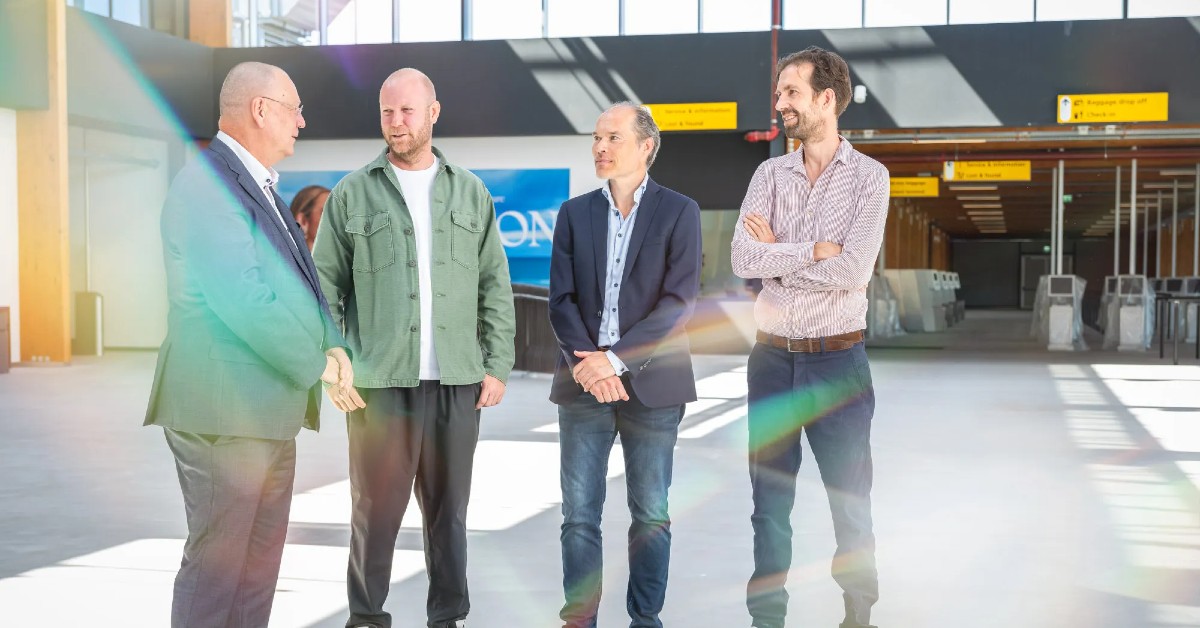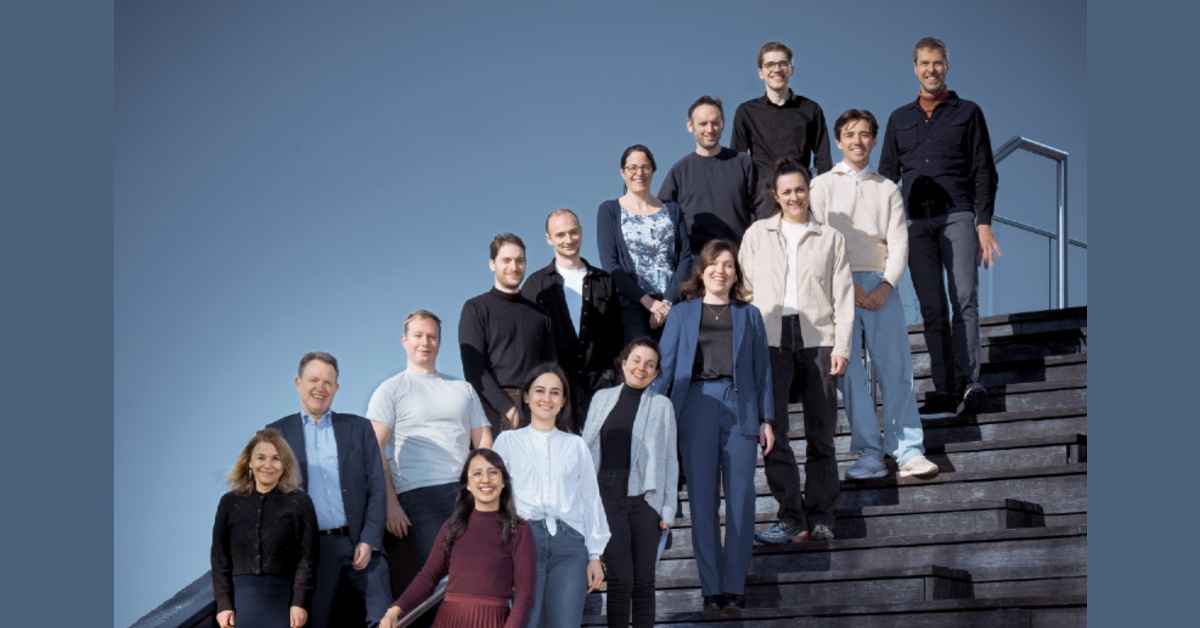Europe’s petascale supercomputer journey began after Vega, the EuroHPC supercomputer was officially inaugurated on 20 April, at a ceremony in Maribor, Slovenia.
Janez Janša, the Prime Minister of Slovenia and Margrethe Vestager, Executive Vice-President for a Europe Fit for the Digital Age, officially turned on the supercomputer which has been made possible thanks to a partnership between the European High Performance Computing Joint Undertaking (EuroHPC JU) and the Institute of Information Science (IZUM), in Maribor, Slovenia. Both parties have jointly invested EUR 17.2 million.
Back in April 2020, Atos was selected as the vendor to make the supercomputer, and by October 2020, a contract was signed between EuroHPC, IZUM and Atos. By March 2021, the machine was finally delivered to IZUM after vendor Atos completed the construction of the system and successfully benchmarked the machine.
With a capacity of 6.9 petaflops (the ability to perform 6.9 million billion calculations per second or 6.9 x 10^15 calculations per second), Vega gives Slovenia its largest research infrastructure as well as lets European researchers co-operate in larger international research projects.
Silicon Canals spoke to Jean-Pierre Panziera, the chairman of the ETP4HPC association. European Technology Platform for HPC is an industry-led pan-European think-tank promoting European HPC research and innovation.
According to Panziera, personalised medicine, bioengineering, fight against climate change, or drug and material design will likely rank amongst the most prominent applications for the Vega Supercomputer.
Specifications of Vega
The Vega Supercomputer is named after Slovenian mathematician Jurij Vega.
It is based on a BullSequana XH2000 supercomputer. It is rated for a sustained performance of 6.9 petaflops and a peak performance of 10.1 petaflops. It houses 1920 AMD Epyc 7H12 CPUs and 240 NVIDIA A100 graphic cards.
In order to be excellent at collaborations, Vega comes with a wide bandwidth for data transfers to other national and international computing centres with speeds up to 500 Gbit/s.
The major applications that Vega will be involved with include traditional computational operations, AI, deep learning, big data operations, large scale data processing and more.
Profound implications for health, AI and SME sectors
The Vega Supercomputer gives not just Slovenia, but pan-European researchers working on computationally intensive research, access to use the HPC.
Speaking at the launch, Janez Janša, Slovenian Prime Minister, said, “The Vega supercomputer will have indirect profound effects on our lives. It will enable scientists to invent new materials and components, it will help them model global phenomena, and develop new medicines and medical therapies in the fight against cancer or Alzheimer’s disease.”
Executive Vice President for a Europe Fit for the Digital Age, Margrethe Vestager stressed on the fact that Vega was the first of the several supercomputers that would open the doors for Europe’s small and medium enterprises to compete in the high tech economy.
“Even more importantly, by supporting artificial intelligence to identify the molecules for breakthrough drug treatments, by tracking infections for COVID and other diseases, European supercomputing can help save lives. In the pressing context of the pandemic, HPC has become an indispensable tool for policy makers for rapidly forecasting how the spread of an infectious disease affects us, planning public health policy response as well as stimulating the efficiency of different containment measures and evaluating different post-epidemic scenarios.”
Anders Dam Jensen, the EuroHPC JU Executive Director, applauded the fact that Vega went live despite the logistical challenges brought about by the Covid19 pandemic.
“The EuroHPC JU will continue to invest in research and deployment of HPC infrastructures, technology and applications and ensure the development of a world-class HPC ecosystem in Europe, to strengthen Europe’s position in the global race towards exascale (10^18 calculations per second), post-exascale and quantum computing capabilities,” said Jensen.
Panziera concurred with the difficulties presented by the pandemic and noted that a lot of the world’s HPC resources were naturally redirected to help identify the virus, its behaviour and quickly develop vaccines.
“The Covid pandemic has demonstrated that efficient treatments and vaccines can be developed quickly with help of HPC. But obviously, HPC can serve healthcare in many other ways to increase the well-being of the whole population. There are still many diseases (e.g. malaria) without cure. HPC will also be central to the development of personalised medicine. And besides healthcare, HPC is an essential tool to address many societal challenges, including climate changes, food supply, natural hazards, smart cities, etc. These should be addressed globally since they are interconnected,” noted Panziera stressing that any HPC should in general be used to accelerate the fight against global societal issues
Access to Vega will be open for Slovene as well as European Researchers, provided it passes the conditions set in the regulations and after fulfilling the general process of allocation. Access time will be allocated to European scientific, industrial and public sector users who match the application requirements.
The calls for access and the timeframe from sending the application to eventually getting access to the Vega supercomputer is explained in depth here.
Elaborating on the role of ETP4HPC, an organisation recognised by the European Commission as well, Panziera spoke about how it plays an important role in the European HPC ecosystem.
“ETP4HPC facilitates the development of common visions, helps find a consensus on R&D priorities and federates the ideas of many different EU stakeholders all along the value chain – from hardware and software technologies, to solutions, their deployment in ad hoc infrastructures, the related services and user support, and of course up to applications and uses in an increasingly wide range of areas. HPC is now taken in the wider sense, with ubiquitous application in the digital continuum from supercomputing to edge.”
Vega builds up on Slovenia’s inherent expertise in supercomputing sector
The Institute of Information Science (IZUM) is one of the top public institutions created by the Government of the Republic of Slovenia in 1990 as an infrastructural institution and it’s also registered as a research organisation. With the Vega Supercomputer, IZUM will be working with supercomputers for the first time.
The city of Maribor already houses one supercomputer called HPC Maister, with a compute capacity of 244 teraflops that’s managed by the University of Maribor. This was part of the HPC RIVR project, which is a partnership between the EU and the Slovenian government. HPC Maister has been in use by local Slovene researchers and universities.
In all, Slovenia has around ten small HPC clusters, but none offer a computing capacity greater than 50 teraflops which is less than a majority of the European countries.
The launch of the Vega Supercomputer, with its capacity of 6.9 petaflops (to put things in perspective: 1 petaflop = 1000 teraflops), puts Slovenia in top positions within the European Union. Vega is also within the top 50 of the Top500, a list of the fastest 500 HPCs around the world. Vega will eventually be interconnected with the seven other HPCs coming up in various European countries shortly.
According to Slovene researcher Dr Jan Jona Javoršek of Network Infrastructure Centre (CMI) there are many exceptional experts in Slovenia who aren’t just masters of their field in Slovenia but globally. Their research prowess was limited due to the limited supercomputing power in Slovenia. With Vega, these researchers now have a possibility of working on globally relevant issues. It just so happened that as Slovenia was building and converging its supercomputing capacity, Europe was also in talks to develop an HPC cluster across the EU region. Slovenia was quick to apply for the EuroHPC initiative when it was first announced in 2018, and was able to convince the EU Commission to invest in Vega. The final capacity of 6.9 petaflops was 4.5 times higher than what Slovenia had first pitched for. In fact, Slovenian supercomputing experts are already working on a five-year cadence of developing more powerful HPCs.
The EuroHPC and Vega partnership is the culmination of those shared goals between Slovenia and the EU Commission.
What next?
Vega is just the first in the line of seven HPCs that will soon be coming up all over Europe. Vega’s launch will be followed by four more petascale supercomputers which will be built in LuxProvide in Luxembourg, Sofiatech in Bulgaria, IT4Innovations National Supercomputing Centre, Czech Republic and Minho Advanced Computing Centre in Portugal.










01
From telecom veteran to Dutch Startup Visa success: The Jignesh Dave story